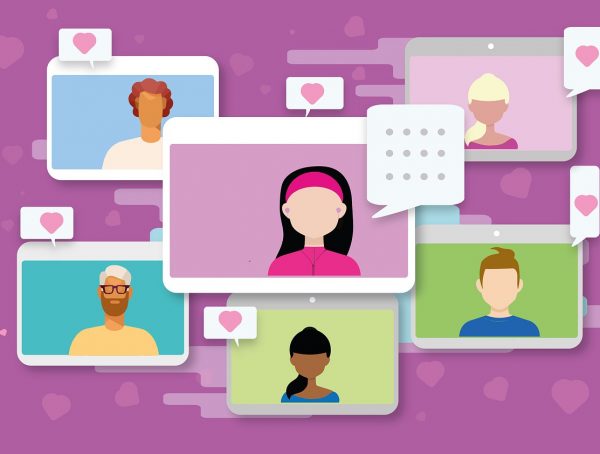On June 30, 2021, the NCAA announced a new interim policy allowing college athletes to profit from their name, image, and likeness (NIL). This means that NCAA student-athletes can now use their personal social media platform to partner with brands and monetize their content.
Dr. Charles Mitchell, Associate Professor of Journalism at the University of Mississippi, explains what the situation was before that decision was made.
“If a person’s name or image or likeness is used to promote a product or a service, then their permission is required,” starts Mitchell, explaining that an infringement of this is considered an invasion of privacy. However, public personalities can make a profit off of their NIL, called the right of publicity. “Before this year, college athletes, as part of their agreement with their university, was that they gave that right up and assigned it to the university, so for instance if a football player wears jersey number 10 and everybody thought he was the best football player in the world, the university could sell a lot of jerseys with the number 10 on it, and all the revenue from that player’s personal popularity went to the university.”
The Supreme Court looked at that fact and ruled that it was not fair for students to surrender their right to publicity, therefore the NCAA changed its position and now allows its athletes to market their name.
Student-athletes, being part of the Millenials or Gen Z generations, often reach high numbers of followers on social media. They already have a lot of power and influence on the social media sphere, they can now be compensated for that.
However, Dr. Mitchell highlights some rules that are common to all college athletes and all paid influencers. First, federal trade regulations require people to disclose when they are paid influencers. They have to disclose their affiliation. Secondly, college athletes cannot use their university’s trademarks (name, logo, uniform…), but they are allowed to market their own name and image. College athletes are now treated like everybody else: they can make money on their own without being kicked off their team because of university regulations. As for social media, it does change the dynamics of the influencer culture too.
“To some extent, college athletes were already [considered influencers], they were just not allowed to get compensated for it,” Mitchell says.
But will this decision push more athletes to become content creators and extend their audience? Nysier Brooks is a basketball player at the University of Mississippi. Since the NCAA’s decision, Brooks has been using his social media platforms — in particular his Instagram — to promote products.
“Right now I’m working with Atlas Bars, keto protein bars, I’ve been working with Slate Milk, it’s this kind of protein milk that is not dairy so it’s better for your stomach, I’ve been working with Drink Glow, hydration sparkling drinks, and I’ve been working with ReAthletes, they’ve sent me some heat massage boots for my recovery and a massage gun for my recovery too,” Brooks says.
Brooks has been reaching out to companies, but sometimes companies themselves reach out to him. For companies promoting sporting products, sports nutrition, and other athletics products, working with athletes allows them to reach an audience already interested in sports.
“It’s kind of fifty-fifty,” Brooks explains. “Some of these companies I just stumbled across and just reached out and asked them because I fit their brand and what they are trying to promote. I know a lot of brands are looking for athletes because we’re committed to working with a team, and we have leadership roles and things like that. So, I feel like the brands I reach out to, work with me because they see how dedicated I am to working with other paid partnerships. … For the ones who reach out, they know that my following has the viewers that are trying to attract.”
Despite using social media mostly for entertainment, Brooks believes partnering with brands is a good way for him to improve himself, and give more visibility to his cooking content: he runs a Tik Tok page and an Instagram page about the food he makes.
Brooks is happy about the NCAA’s decision and definitely plans on doing more partnerships in the future. Regarding these brand new opportunities, universities have to adapt their guidelines and athletes have to learn what they legally can post on their social media.
“[The university] did give training on basically the things we can and can’t do regarding paid partnerships, or NIL deals,” says Brooks. “Every deal we do have to be documented on the Flickr App. Basically, it was like ‘do not take anything without going through a contract and making sure the contract went to the Flickr App. You cannot take anything at a discounted rate.'”
Brooks doesn’t consider himself to be an influencer, but a role model for children.
“Just trying to be the best person I can be and help lead them in the right direction by example — which is getting good grades, staying out of trouble, and just trying to live a positive lifestyle.”






